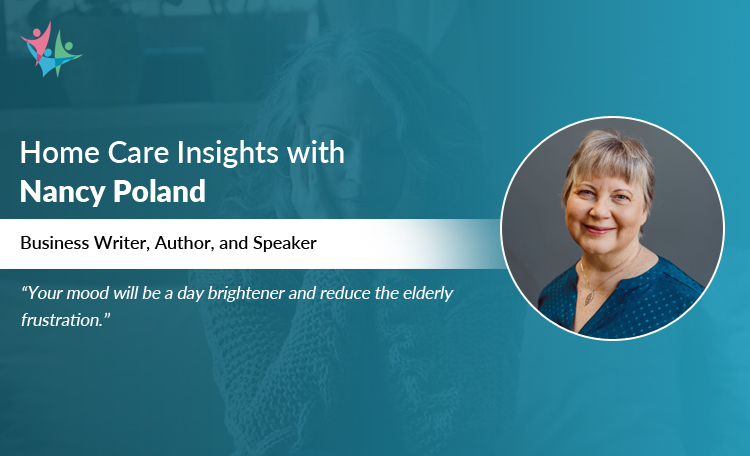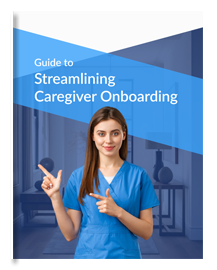In Conversation with Nancy Poland to Bring Her Insights on Seniors & Alzheimer’s
As people age, Alzheimer’s disease becomes a concern, affecting their memories and cognitive abilities. Preventing Alzheimer’s involves taking proactive steps. Encouraging regular physical activity, like walking or yoga, helps maintain brain health.
A balanced diet with fruits, vegetables, whole grains, and healthy fats nourishes the brain and overall well-being.
Engaging in stimulating activities such as puzzles, reading, or learning new skills fosters cognitive resilience. Social connections are essential, as regular interactions and emotional support lower the risk of Alzheimer’s. Managing stress and getting enough restful sleep is also crucial for brain health.
By embracing these preventive practices, we can empower seniors to enjoy their golden years with mental clarity, ensuring that their cherished memories remain an integral part of their journey.
To shed some light on the same, we interviewed a home care industry expert to bring her perspective on helping seniors overcome Alzheimer’s with caregiver support.

Nancy Poland is a business writer, author, and speaker who’s worked in the contract and compliance field for a for-profit corporation and a non-profit. As Poland approached retirement, she started her own company, and her mission was to provide caregivers, present and future, resources to sidestep a crisis and thrive as a caregiver.
Nancy is a Community Educator for the Alzheimer’s Association, giving public presentations on dementia and related topics. She is also a volunteer at a church and townhouse association.
Let’s get started with knowing what our expert thinks of the home care industry:
Question 1: What, in your opinion, can caregivers do to support seniors with Alzheimer’s?
First, caregivers need to educate themselves about the disease. A good place to start is with the Alzheimer’s Association at alz.org, where caregivers can learn about the progression of the disease, the latest research, and how to assist their care partner (the person with dementia.)
It is important to realize Alzheimer’s and other dementias are diseases, and as the disease progresses and the brain changes, the care partner will lose their ability to perceive reality. The caregiver must learn to adapt and find ways to support their care partner.
Critical step: ensure the care partner has all the necessary legal paperwork. People over 18 should have a durable power of attorney, a health care directive, medical power of attorney, and a will in place. If the person with dementia is still in the early stages, they can help make decisions about their future. Also, they must be of “sound mind” to ensure the legality of these documents. Often these documents can be found on the state’s website (if in the U.S.)
Otherwise, paying an attorney to prepare the documents can save thousands of dollars in court costs if the person needs a guardian appointed.
Question 2: Do Alzheimer’s patients need to make certain lifestyle changes to minimize the impact?
As the disease progresses, Alzheimer’s patients will need more help. At first, they may be able to function with minimal assistance, but as time passes, they will need help with finances, transportation, personal care, meals, and more.
While still respecting the person’s personhood, caregivers can ease tasks such as bill paying online, hiring a housekeeper, or providing meals.
Caregivers will want to have conversations early in the disease, as it may take time to convince the care partner of the value of help. As the disease progresses, they will likely need to move to a place that offers more care, which can be difficult. Don’t be afraid to contact the Alzheimer’s Association or seek other professional advice for help.
Question 3: How should family members and caregivers communicate with Alzheimer’s patients?
Judy Cornish, the founder of the Dementia & Alzheimer’s Well-being Network® (DAWN), has written two books for caregivers about helping people with dementia for professionals and family members. She presents dementia care as a person-centered approach.
For example, if you visit a parent with dementia, instead of rushing in and telling them how busy you are, approach them gently, look into their face, smile, and tell them how happy you are to see them. Your mood will be a day brightener and reduce your frustration. Do not argue or disagree with someone with dementia; they live in their reality, not yours. It can take a lot of patience to put yourself in their shoes!
Practice what you want to say, learn to take deep breaths before responding, and do not react negatively to their confusion.
Again, education can help caregivers learn methods of communication at various stages of
the disease.
Question 4: Do caregivers and family members need to take certain steps to make the elderly’s house Alzheimer’s friendly?
I cannot emphasize enough the importance of getting guns and ammunition out of the home or, at a minimum, locked up and unavailable to the person with dementia. A person with brain disease may not recognize the danger of a firearm or may react out of anger and frustration, and tragedy results. Even if there is no ammunition, and the person runs outside with a gun, the police may face a dilemma regarding how to react.
Do all you can to eliminate the possibility of falls. Slipping on rugs, tripping on small items, stats, low toilets, and bathtubs can all cause falls. Upgrading lighting can help—visual cues help, such as using contrasting colors on the floors and calming colors in the room.
There are websites with helpful ideas for caregivers, and the person’s insurance company or clinic may send out someone to review safety in the house.
Question 5: What advice do you give to caregivers dealing with Alzheimer’s older adults?
Do not try to care for your care partner alone. There are community resources, other family
members or neighbors may be willing to help, and faith communities may provide meals or company.
If the person is a veteran, seek out available benefits. My father got “Aid And Attendance,” a veteran pension, which allowed my parents to live independently for several years. It is important to remember Alzheimer’s and other dementias are progressive diseases; you need to plan for the future, which may include researching alternative living situations.
Understand their finances, what they can pay for, and if they will run out of money. An elder law attorney can guide government benefits and the laws in your location.
In Conclusion
Alzheimer’s disease presents a significant challenge for the elderly, impacting their memories and cognitive abilities. To provide the best care, it is crucial to approach the elderly with compassion, patience, and understanding.
Creating a safe and stimulating environment tailored to their needs fosters a sense of security and enhances their well-being. Regular monitoring, medication management, and involving them in enjoyable activities promote their cognitive and emotional health.
Maintaining open communication with healthcare professionals and family members also ensures a comprehensive support system.
By embracing these care principles, we can make a profound difference in the lives of those affected by Alzheimer’s, offering them comfort and dignity throughout their journey.
